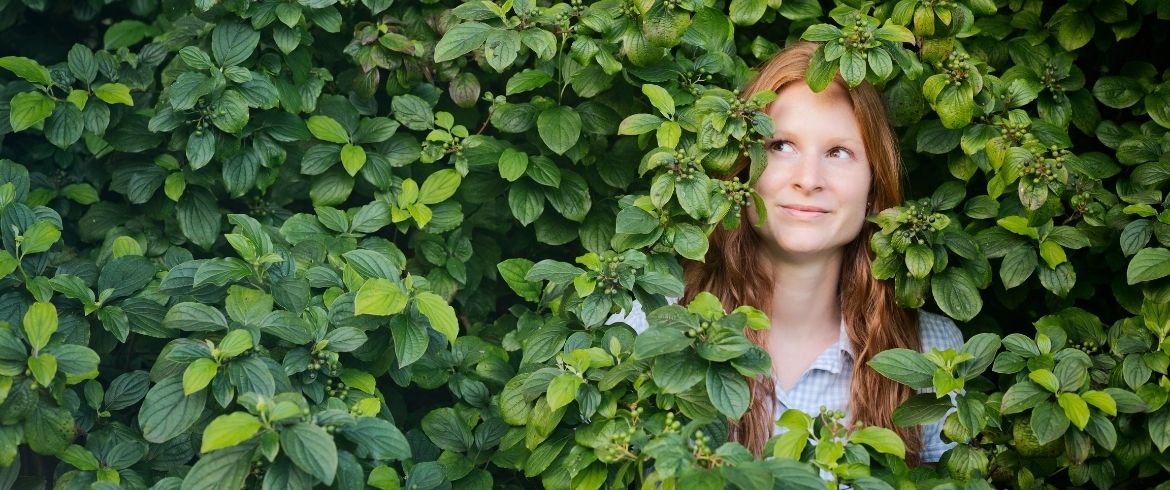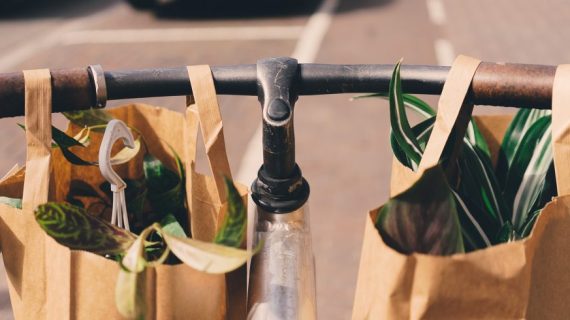Don’t just celebrate Earth Day once a year, celebrate it every day adopting sustainable habits! Here’s how.
As consumers, we have the power to answer the call to save the planet. More than ever, it’s crucial to recognize and take accountability for our daily choices that affect the environment. Everything we use has an impact. Just being a little more conscious of our usage goes a long way to creating a sustainable lifestyle.
A lot of us are just unsure of how to go about it, or worry that we can’t keep it up. Remember, the point is not to live a perfect life, but to make minor lifestyle changes that, in the bigger picture, will help the environment. Many people attempting to live sustainably, although imperfectly, will have a much bigger impact than just a few people doing it perfectly.
Read on for a few easy tips you can follow to foster sustainability.
1. Repair, Re-use or Upcycle
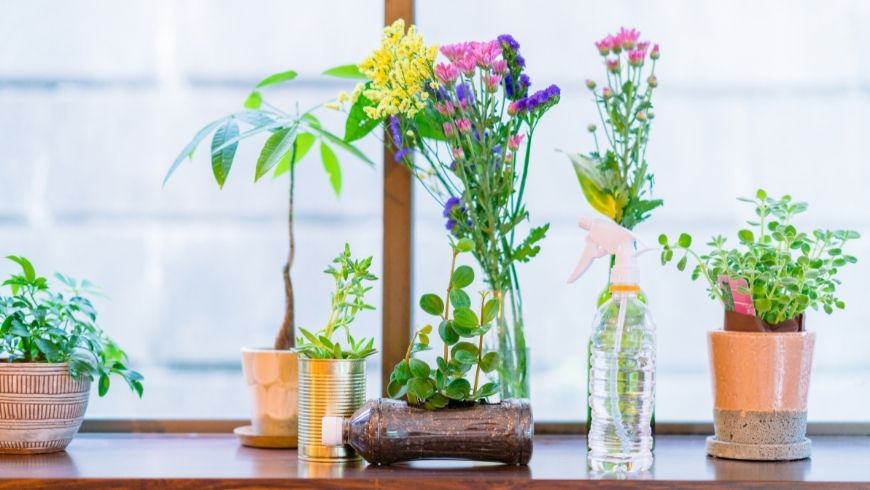
In our current society, it’s become the norm to just throw things away when they break, or once we’ve used them. It may take a little thought and DIY skills, but always repair your broken goods when possible. It’ll keep them from landing in the dump and save you from forking out money for new products.
In the same vein, reuse things if you can, and try to find new uses for them (upcycle) when you can’t. For example, use old plastic containers for your lunch or for storage, or create artworks, sculptures, or planting pots.
2. Switch from Disposable to Reusable

It simply makes no sense to use something for 10 minutes only to discard it again, unusable, after it’s taken non-renewable resources and hundreds of hours of manufacturing to create. Just one person switching to reusable packaging would save around 22000 bags.
Consider getting yourself a reusable shopping bag, coffee mug, water bottle, straw and material napkin, and carry a set of cutlery around in your handbag or car if you tend to eat takeaways.
3. Shop at Bulk Food Shops or Stalls
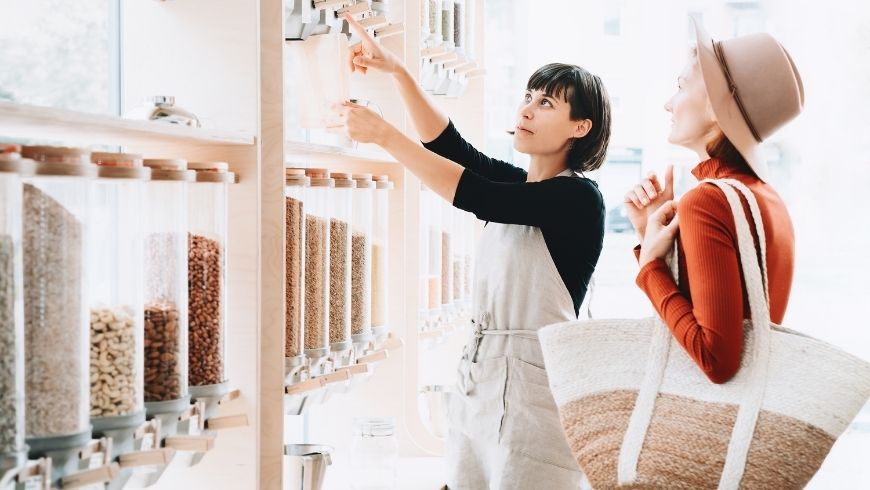
Although some commercial stores are slowly catching on, the best way to buy food sustainably is at bulk food shops where the veggies and fruit are loosely stored and you can use your own packaging. This reduces the waste from all the plastic packets, which are unrecyclable.
4. Look for Recyclable Packaging
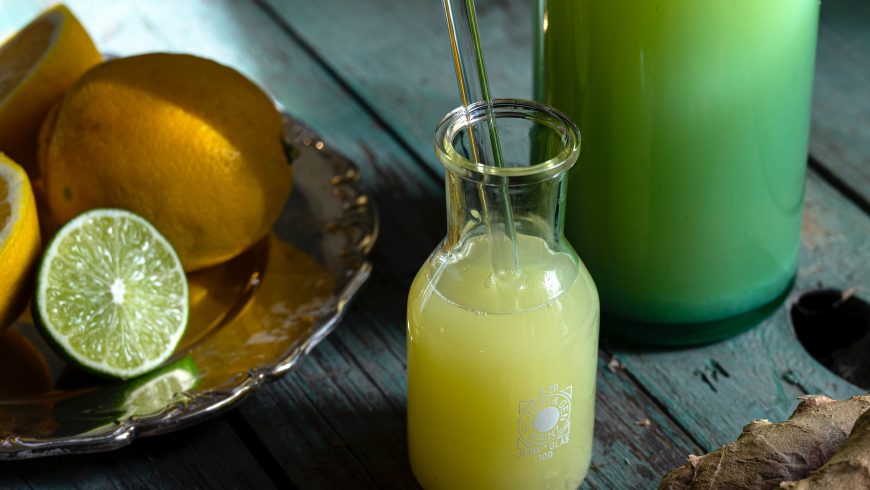
Containers made of glass, tin, or paper can be recycled and use much less energy to produce than plastic. For example, choose glass bottles of milk or juice, or tinned sauces rather than sachets.
5. Buy Second-Hand or Consciously

Buying second-hand goods is not only easier on the pocket, but can be stylish too! Everything you buy new, means more natural resources going to waste in production, and perfectly good, older versions lying in a dump somewhere.
There are however some things that you should buy new, like a supportive mattress or a car that’s more energy and fuel-efficient than older models. When you buy new, do your homework, and invest in a quality product that won’t end up sitting in a landfill a year down the line.
6. Start Composting
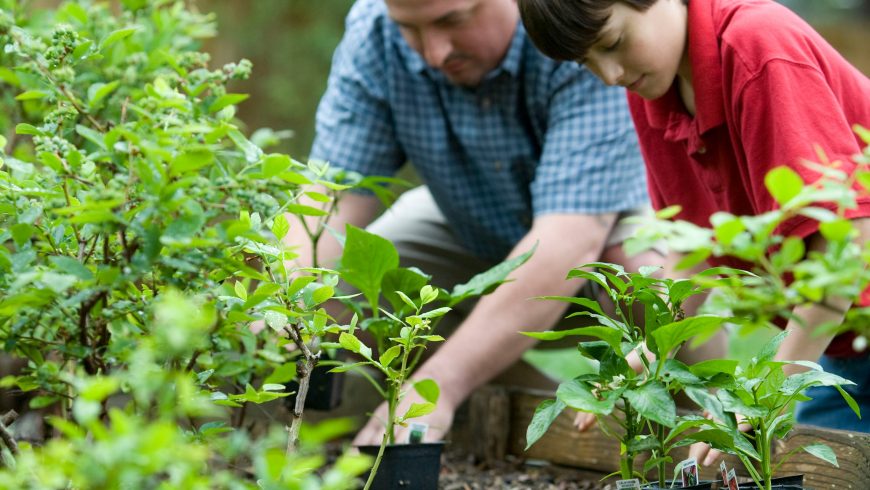
It’s easy enough to create a compost pile in a relatively small space. By composting your organic waste, you’re creating nutrient rich feed for your garden, as well as reducing the waste that goes to landfills. When our organics are in a landfill, they don’t decompose properly and create toxic methane gas.
7. Reduce your Meat Consumption

Meat (especially red meat) requires a tremendous amount of resources to produce. A single pound of beef requires around 1850 gallons of water to reach your table, whereas the same amount of veggies would use only 39 gallons.
You don’t have to cut meat out of your diet entirely to make a difference. If everyone had one meat free day a week, it would have a massive impact, so start small and expand. Besides, our options for plant-based meat alternatives are becoming seriously delicious!
We hope this short guide helps you on your path to sustainable living. Don’t underestimate the power you have to save the environment. Every little bit helps!
Cover image: photo via canva pro
